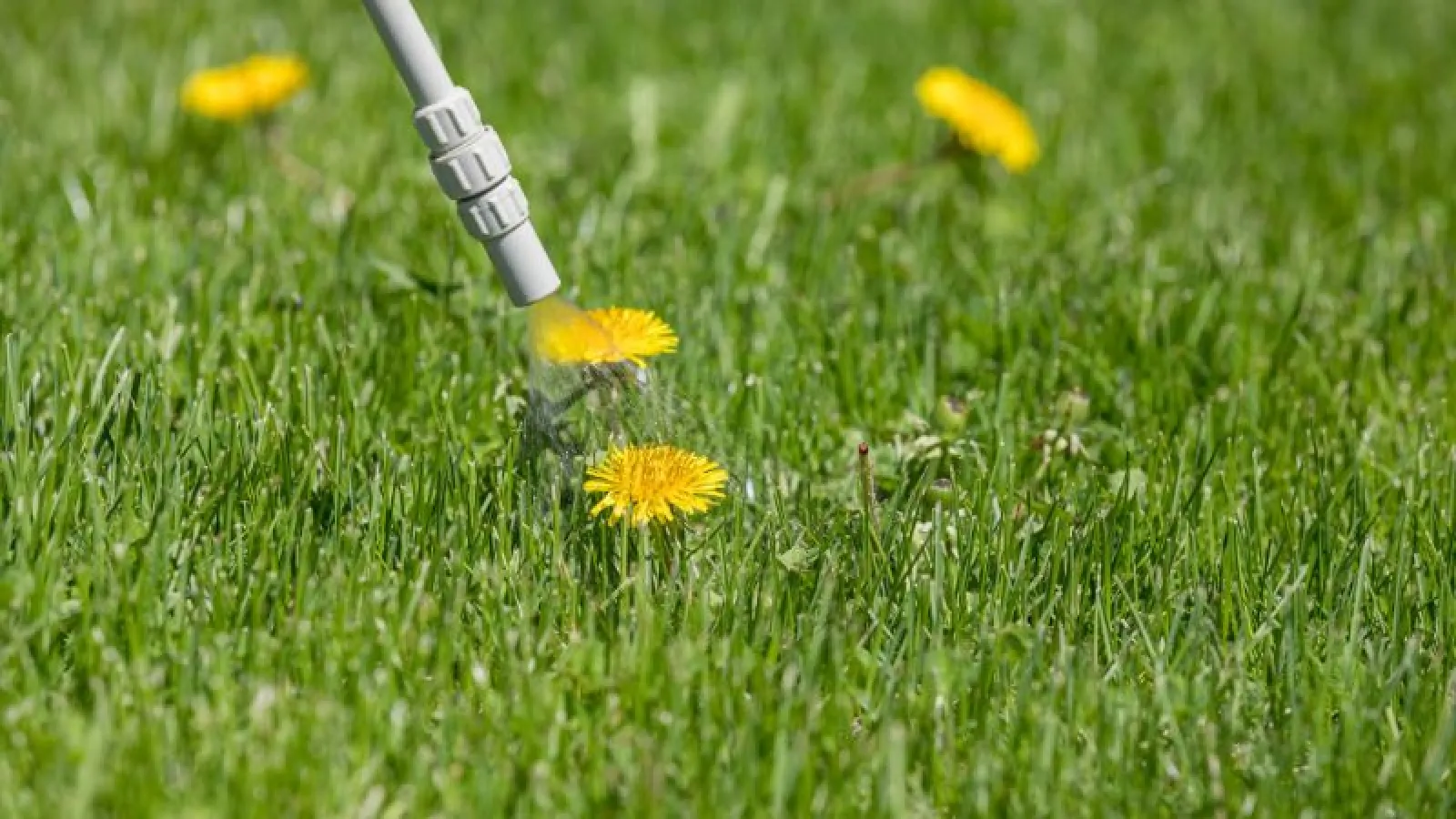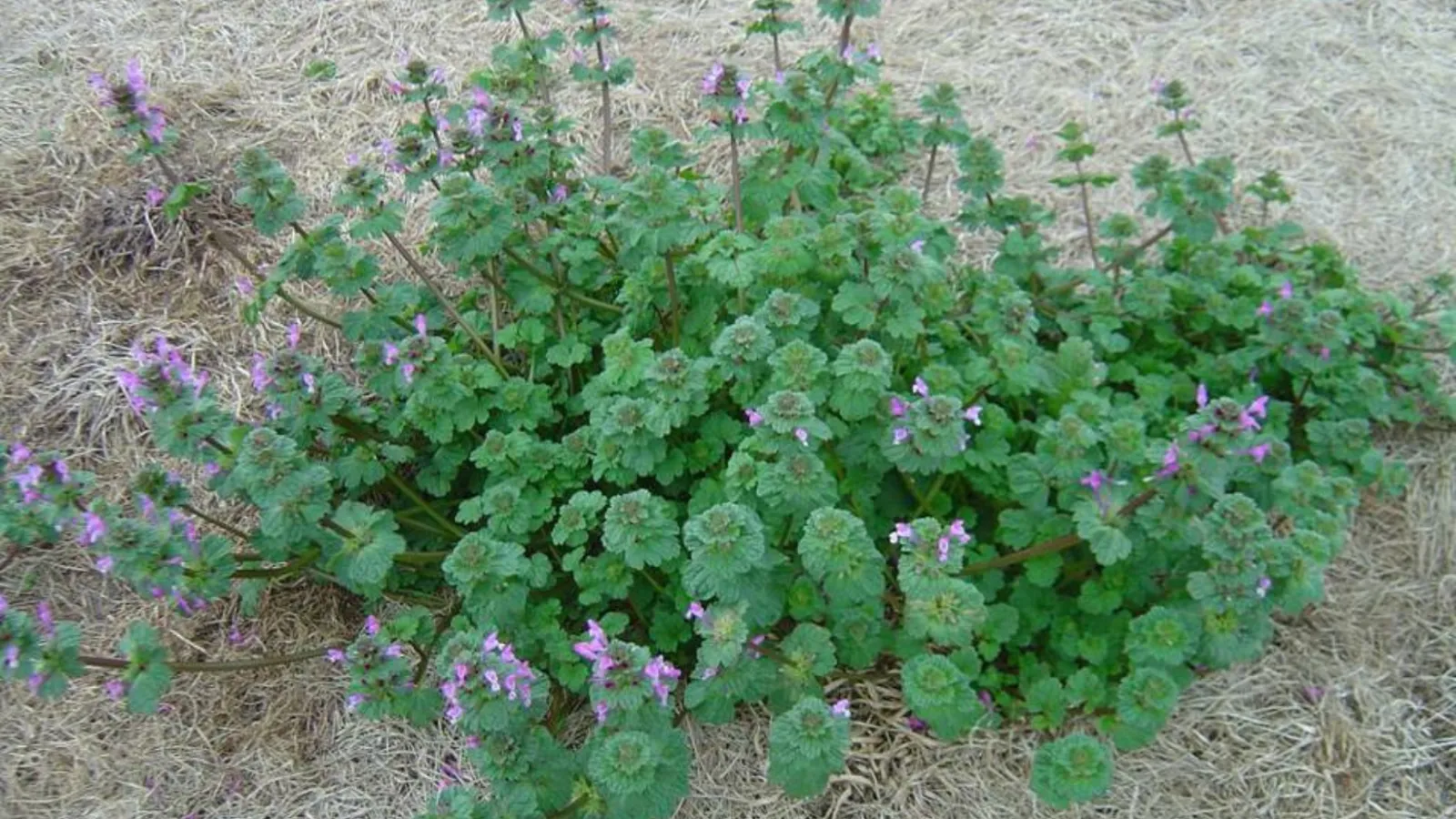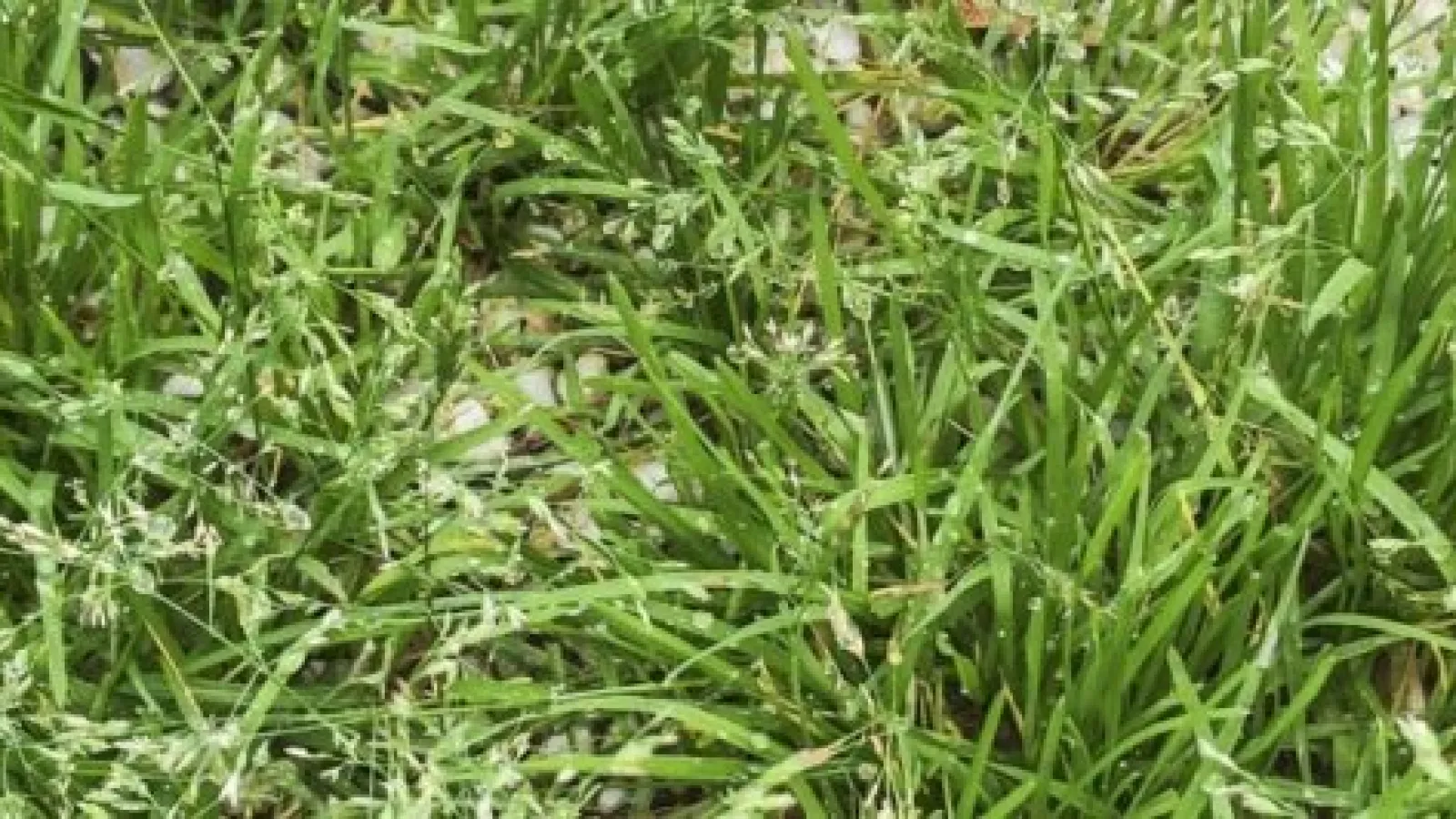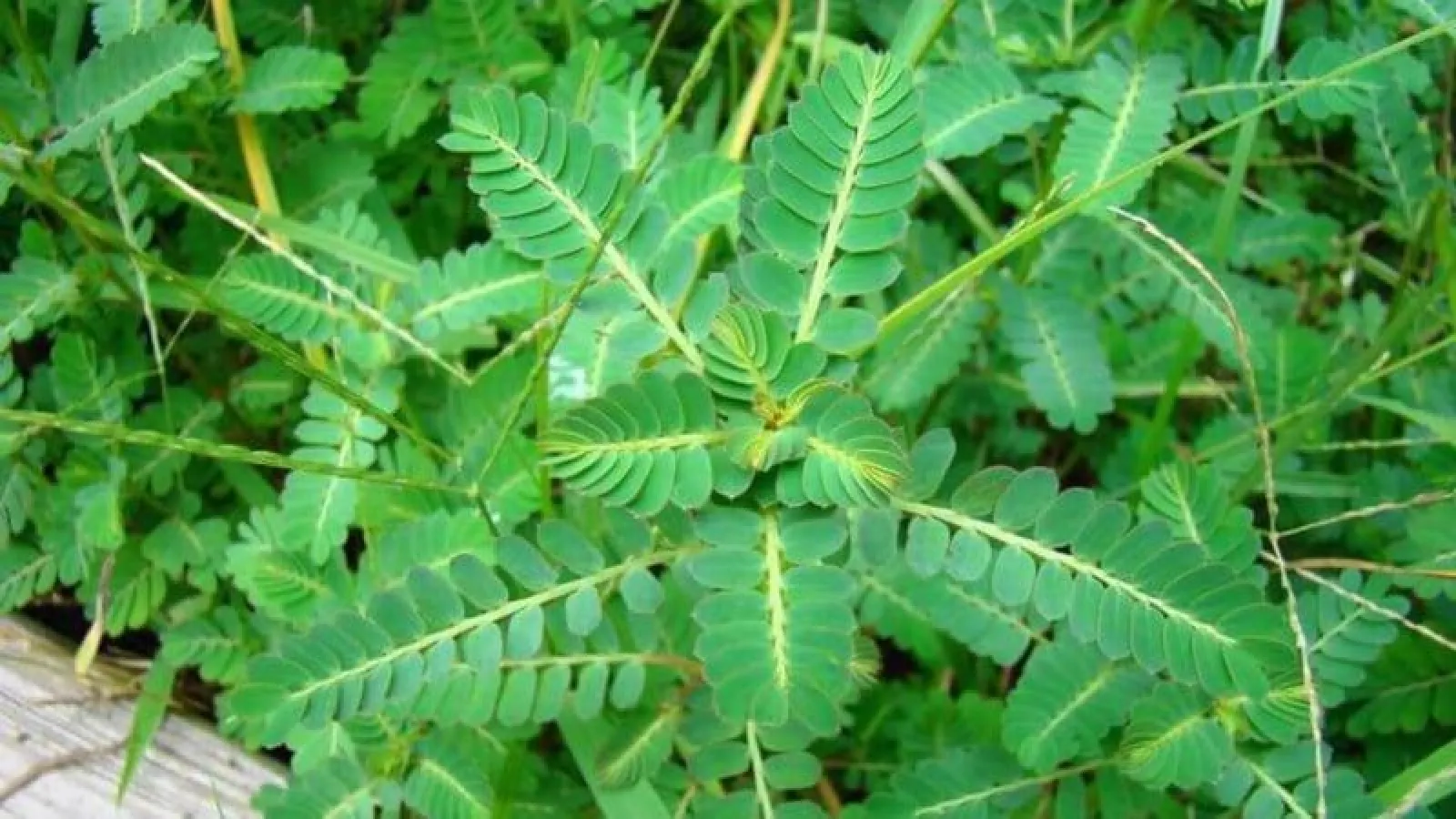
Pesky Summer Lawn Weeds
Doveweed & Chamberbitter
Many people love the warm weather and long days of sun in the summer, but so do many weeds. Doveweed and chamberbitter are common summer weeds that can invade your warm-season lawn and leave it looking less than desirable. Read on to learn more about these pesky weeds.
What Is Doveweed?
Doveweed (Murdannia nudiflora), part of the dayflower family, is a summer annual weed that has grown increasingly troublesome in lawns and sod production over the last few years. (We mention sod production because doveweed can be brought into a lawn in new sod-you may have a weed problem as soon as your new sod is laid.) This weed germinates in the spring-later in the growing season than most other summer annual weeds-and rears its ugly head in the summer. Because of the late germination, pre-emergent herbicides applied in February and March may not be effective in preventing doveweed.
Doveweed leaves closely resemble grass and can be confused with St. Augustine grass or centipede* grass leaves. And many people don't notice it until the plants are large and displacing the turf. Upon closer inspection of the weed, you will find that doveweed has stems that root at the nodes and purple flowers that appear on short stalks in clusters. Doveweed spreads aggressively in the lawn by thick above-ground, creeping stems called stolons. The leaves are thick with a shiny rubbery texture and up to 4 inches in length.
Controlling Doveweed
As a homeowner, there are several steps you can take to help prevent doveweed.
- Do not overwater and resolve any draining issues in your lawn, and allow the surface soil to dry between watering. Again, doveweed prefers wet areas, so water management is important.
- Mow at the proper height and frequency. Doveweed leaves grow horizontally and can often avoid mower blades. Chose a mowing height that allows good ground cover, yet only removes a third of the turf leaf blades.
- Core aerate annually. This will reduce soil compaction, improve internal soil drainage and aid in deep root growth.
What Will Kill Doveweed?
Though challenging, doveweed is easier to control before plants are well established. Post-emergent herbicide applications, provided in our Lawn Care Program, can help knock back existing weeds. But because doveweed seeds can live in the soil for several years, it may take a couple years of continuous control to eliminate the weed. Although chemical control is useful, the most important factor in preventing doveweed, as well as other weeds, is having a healthy, thick lawn.

What Is Chamberbitter?
Chamberbitter (Phyllanthus urinaria), also known as gripeweed, leafflower or little mimosa is an annual broadleaf weed. It is found as far north as Illinois and as far west as Texas, but thrives in warm-season turfs in the southeastern states, including Georgia, South Carolina, Alabama and Tennessee. It's a headache for homeowners as well as pasture managers-hence its nickname, gripeweed.
Chamberbitter emerges from warm soils beginning in early summer. The foliage resembles that of the mimosa tree (Albizia julibrissin) and can be confused with the native mimosa groundcover, known as powderpuff mimosa (Mimosa strigillosa). The chamberbitter plant grows upright and develops a long taproot. It reproduces by seeds that are found in the green, wart-like fruit found on the underside of the branch.
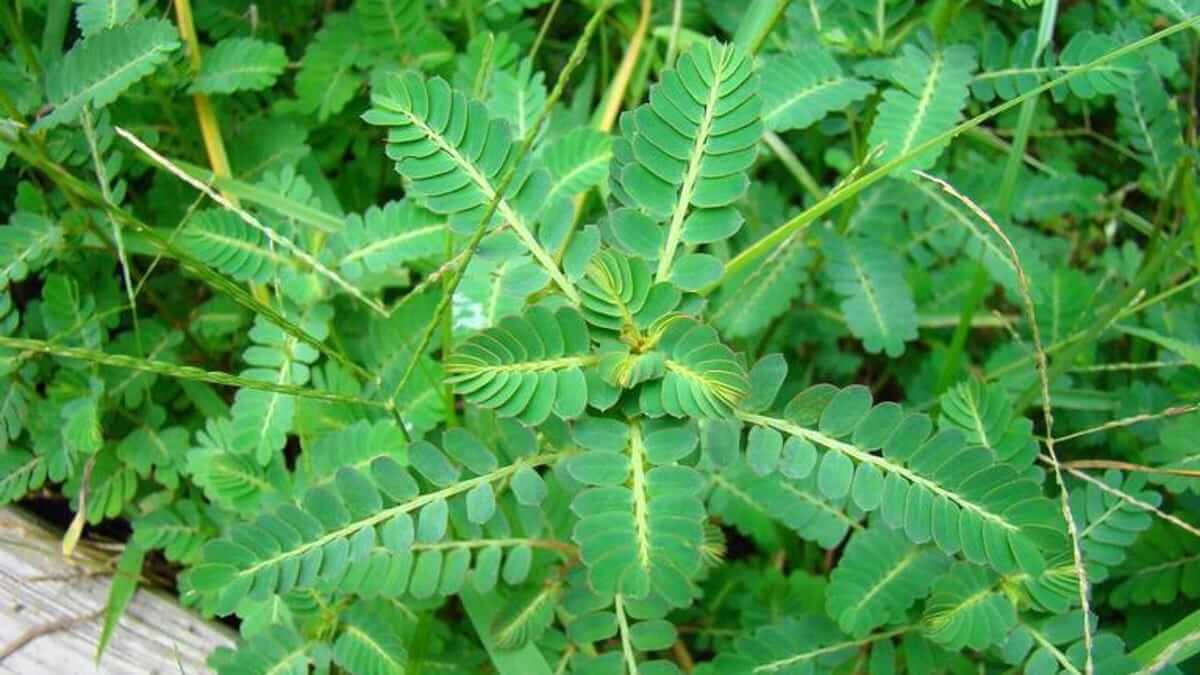
How Do You Kill Chamberbitter?
Homeowners have a few options in killing chamberbitter: mechanical control, cultural control and chemical control.
You can manually remove chamberbitter by pulling it from the soil. This is most effective when the weeds are young and small or in the seedling stage. And this is easiest to do when the soil is moist.
Proper lawn management practices is a natural cultural weed control.. This includes proper mowing, nutrition and watering. As with any weed, having a healthy, thick lawn is the best prevention of chamberbitter-we can't say this often enough. Chamberbitter is found in turfgrasses and landscape beds too. Applying 2-3 inches of mulch in the spring to cover the seeds can be effective because the seeds need light to germinate.
Chemical control including pre- and post- emergents can help prevent and knock-back chamberbitter, respectively. Pre-emergents shoulds be applied before the seeds germinate so the timing for pre-emergents is imperative. Post-emergents are most effective when applied to young weeds.
Professional Weed Control
Although complete eradication of doveweed and chamberbitter, as well as other summer weeds, may not be achievable, management and control of the weeds are. Having professional, year-round lawn care, coupled with proper maintenance, can leave you with a beautiful lawn you can be proud of. Contact Turf Masters Lawn Care today for your free lawn evaluation and get control of pesky weeds.
*We no longer treat Centipede lawns as of May 1 2022
